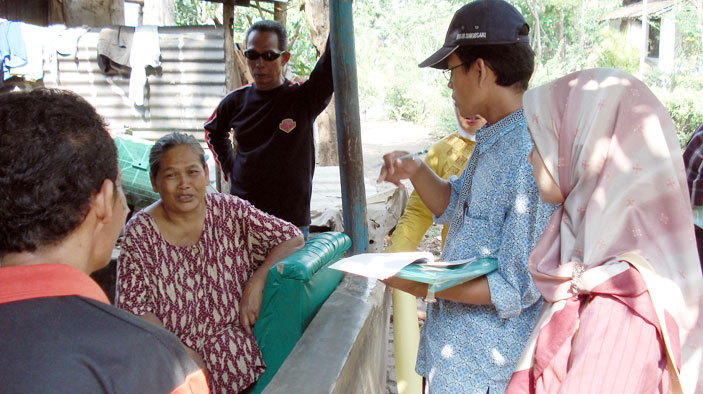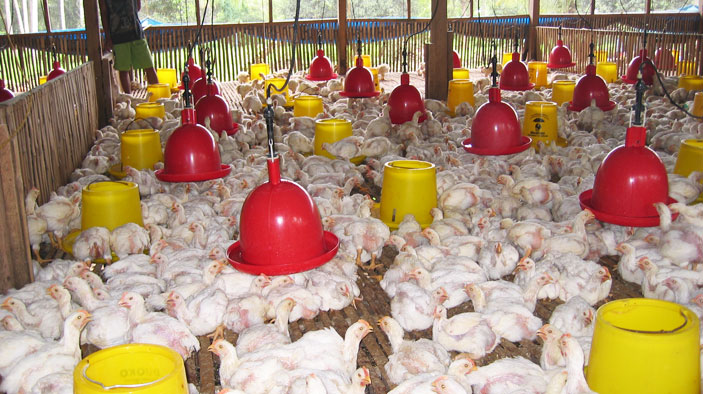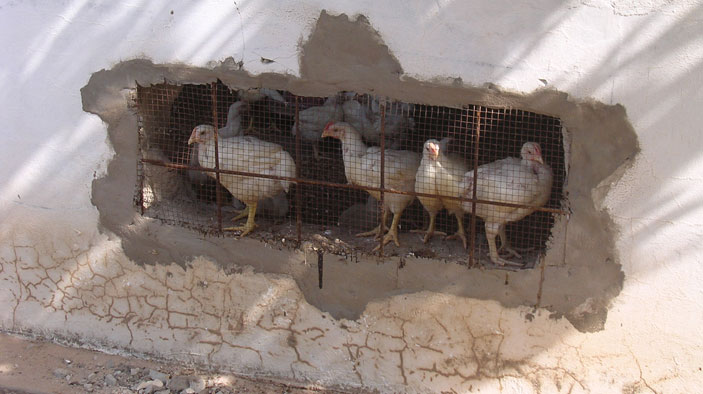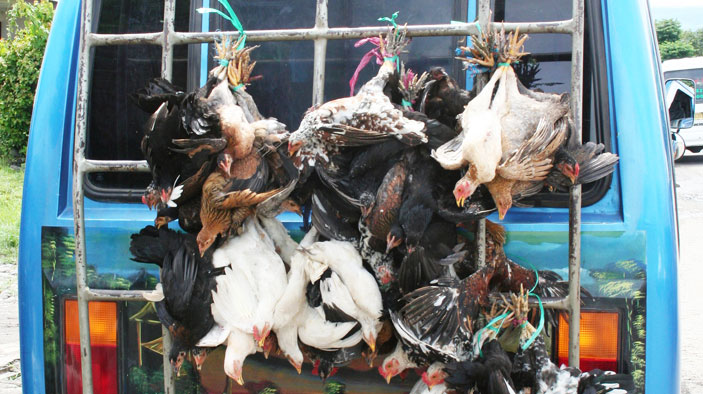Expanded local capacity in surveillance and response in 27,000 villages in Indonesia.
DAI and COVID-19
The novel coronavirus has had a profound public health impact in the developed world and is poised to have an equally if not more devastating effect on developing nations. As travel bans, lockdowns, and stalled trade take an increasing toll, economic spillover effects—and associated social instability—threaten to compound the crisis, especially in some of the world’s more vulnerable and fragile states.
NEWS & INSIGHTS / GLOBAL HEALTH SOLUTIONS / ECONOMIC AND SOCIAL RECOVERY / DIGITAL RESILIENCE / GLOBAL VOICES / WEBINARS
- Zimbabwe Agriculture Project Finds Ways to Engage Smallholder Farmers, Despite COVID-19
- New Public Health Emergency Coordination System Will Strengthen Pandemic Response in Southeast Asia
- Why Aligning with the SDGs Helps Energy Companies Position for Growth, and How to Do It
- A Shift in Mindset: Distance Learning during COVID-19 Boosts Participation in Honduras
- Commercializing Agricultural Innovations in the Age of COVID-19
- Gender-Based Violence on the Rise in the COVID-19 Era
- Development During Quarantine: Lessons from Four USAID Projects
Integrated Solutions for Immediate Response and Long-Term Recovery
After decades progress in the areas of inclusive economic growth and poverty reduction, the advent of COVID-19 threatens to reduce world trade by as much as 32 percent, according to the World Trade Organization, and could drive 500 million people into poverty.
DAI is particularly well positioned to meet the demands of this multidimensional crisis. Global in reach—with projects on the ground in almost 100 countries—DAI offers a rare combination of world class expertise in pandemic preparedness and response plus decades of experience in crisis mitigation, economic recovery, and government capacity building and support. Our local platforms in key geographies and our global network of projects are primed to implement rapid-response and longer-term interventions in support of our clients and local partners.
Global Health Solutions
For 20 years, DAI has been at the forefront of global efforts to prepare for, respond to, and mitigate pandemic threats.
Today, DAI’s global health team is ready to provide technical assistance across projects and directly with governments and the private sector to help our clients prepare for, detect, and respond to disease threats; build International Health Regulation capacities; and work at national and subnational levels to ensure governments, civil society, and the private sector can reduce the impact of COVID-19.
On projects such as Women for Health in Nigeria (W4H), the Tackling Deadly Diseases in Africa Programme, and Better Health in Mexico, we are pivoting activities to address COVID-19. In Nigeria, for example, we are adding components on community awareness raising, e-training for midwives and health workers, and psychosocial counseling for medical personnel on the frontline. In Indonesia, the USAID Jalin maternal health program is preparing to help health facilities treat pregnant women and newborns with COVID-19 and to educate health workers on the virus.
Economic and Social Recovery
The advent of COVID-19 presents developing countries with daunting challenges—all interconnected—from economic, financial, and fiscal shocks to supply chain, agriculture, and food system disruption, to educational paralysis, challenges in the water and sanitation sector, and so on.
Because many countries in the developing world lack the social safety nets necessary to underpin physical distancing regimes and protect vulnerable people in times of acute distress, the governments, policy makers, donors, private sector actors, and civil society groups in these countries will have to rally as never before.
Across DAI, we are pivoting our teams and re-aligning resources to take on the COVID-19 pandemic, working across all of DAI’s business units to ensure that our response is globally coordinated and informed by the full range of DAI’s technical specialists.
In Egypt, for example, DAI is working through the USAID Macro-Economic Stabilization and Reform Project to help relevant ministries address the economic impact of COVID-19—by assessing the outbreak’s effect on key sectors, forecasting revenue and expenditure to estimate the repercussions of COVID-19 under different scenarios, and refining the government’s fiscal risk management plan.

In Somalia, DAI’s EU Somalia Technical Assistance Facility is advising the European Union and other donors on practical responses to COVID-19 through a shock-responsive social assistance system, while analyzing global social assistance responses to extract a contextually appropriate approach for Somalia.
DAI has also been selected by the U.K. Department for International Development to implement its Social Protection Approaches to COVID-19: Expert Advice Helpline (SPACE), which supports DFID’s Social Protection Team. Without safety nets, poor people are not able to stay at home: they have no sick leave and little cash with which to stockpile food or buy medicine. Poverty fuels the contagion, which in turn deepens poverty. DAI brings to bear years of experience designing cash transfer programs for target groups to maintain living standards and spur demand-led recovery—with a focus in this case on delaying the spread of the virus and supporting a quicker rebound post-pandemic.
Digital Resilience
Digital technology is increasingly central to economic development and social life across the world, a fact thrown into relief by the COVID-19 pandemic, as governments and organizations turn to physical distancing, impose remote work rules, and leverage data to monitor, adapt, and respond to the crisis.
But while digital tools offer enormous utility, they also present risks. As government and private sector functions move online, cyber criminals and malicious state actors see opportunity. These challenges are not new, yet their threat is amplified in a crisis environment where individuals and institutions must rely on digital connections to access critical services and information. Disinformation, for example, is a growing threat to trust in government systems and processes, as well as to the social fabric modern societies rely on.

DAI is well positioned to tackle these challenges given our expertise in digital development and cybersecurity, public and private sector development work, and health systems strengthening and pandemic response. Our holistic approach builds resiliyence in vital systems in the short term, while developing capacity to sustainably address connectivity, cybersecurity, disinformation, and data voids in the long term. These solutions follow a structured path (diagnose-develop-deploy) that can be adapted and scaled to a variety of applications, from public institutions such as ministries, central banks, and state-owned enterprises to smaller organizations such as municipalities, businesses, and NGOs.





